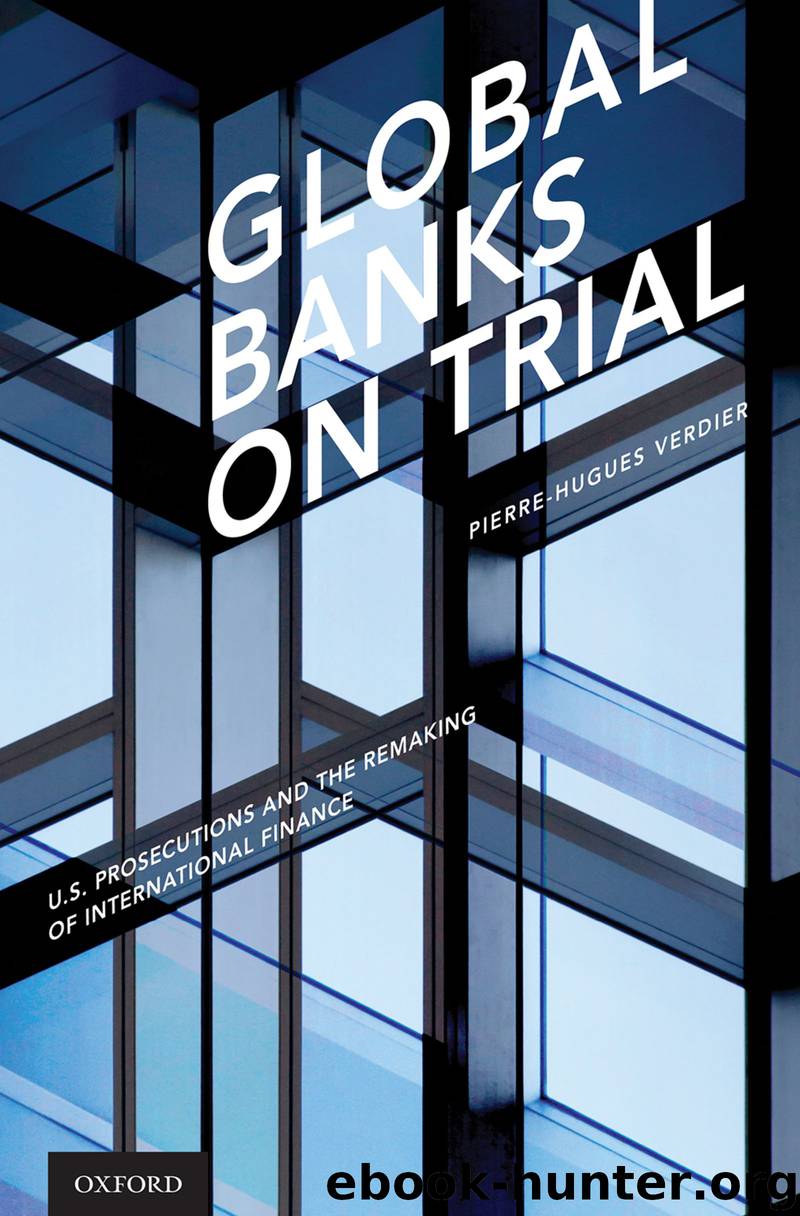Global Banks on Trial by Pierre-Hugues Verdier

Author:Pierre-Hugues Verdier
Language: eng
Format: epub
Publisher: Oxford University Press
Published: 2020-04-15T00:00:00+00:00
“Totally Disproportionate, Unfair Sanctions”
In June 2014, the U.S. enforcement campaign culminated with the DOJ’s action against BNP Paribas, France’s largest bank and another giant of global finance, with nearly $2.4 trillion in assets and 190,000 employees worldwide. As U.S. prosecutors saw it, BNP’s case was ridden with aggravating circumstances. For years, the bank had helped Sudan, Cuba, and Iran move U.S. dollars in violation of U.S. sanctions. BNP’s Sudanese business was the most brazen: unlike Iran, there was never a “U-Turn exception” for the country, whose government had harbored Al Qaeda and was accused of genocide in Darfur: virtually all U.S. dollar transactions were prohibited. Despite its own employees’ qualms, BNP provided a lifeline for Sudan’s oil trade, giving its largest government-owned bank access to trade financing and U.S. dollar payments. According to prosecutors, by 2006 BNP’s Geneva subsidiary financed 25% of all Sudanese exports and held half of the country’s foreign currency assets.132
As in other global banks, BNP employees stripped U.S. dollar payment instructions, but they outmatched their competitors in devising creative ways to serve their sanctioned clients. The Geneva office set up accounts for several non-Sudanese “satellite banks,” located in the Middle East and elsewhere, who volunteered to serve as intermediaries for Sudanese payments. Instead of sending a wire transfer to the Sudanese bank’s account at BNP, a buyer of Sudanese oil would send it to one of the satellite banks’ BNP account. Thus, the payment order processed in the United States would show no connection with Sudan and would not trigger the OFAC filter. Once the funds arrived in the satellite bank’s account, BNP would transfer them internally to the Sudanese account. BNP bankers devised a similar scheme to process Cuban transactions, allowing the country to access U.S. payments.
Unlike at other global banks, senior officials at BNP were clearly aware of these practices and approved them, all in the service of the bank’s “privileged and historical relationship . . . with institutions in countries under total US trade embargo.”133 Lawyers, compliance staff and bankers who tried to raise the alarm were rebuffed or ignored. In September 2005, a meeting was organized in Geneva “to express, to the highest level of the bank, the reservations of the Swiss compliance office concerning the transactions executed with and for Sudanese customers.”134 One of the attendees was the bank’s chief operating officer, Georges Chodron de Courcel, a scion of imperial nobility, cousin of former President Jacques Chirac’s wife, and lifelong BNP employee. After hearing the compliance officers, he dismissed their concerns—and instructed that there be no written record of the meeting.135 Meanwhile, BNP agreed with the New York Fed and NYDFS to fix compliance problems in its U.S. dollar payments and correspondent accounts—then continued its large-scale sanctions evasion.
It was only when OFAC contacted BNP in 2007 and requested an internal investigation that the bank finally wound down its Sudan business. Even then, BNP resisted U.S. demands, and the investigation dragged on for years. Likewise, when New York and Federal prosecutors questioned
Download
This site does not store any files on its server. We only index and link to content provided by other sites. Please contact the content providers to delete copyright contents if any and email us, we'll remove relevant links or contents immediately.
The Borden Murders by Sarah Miller(4325)
The Secret Barrister by The Secret Barrister(3711)
Police Exams Prep 2018-2019 by Kaplan Test Prep(2549)
Coroner's Journal by Louis Cataldie(2480)
The Splendid and the Vile by Erik Larson(2475)
Terrorist Cop by Mordecai Dzikansky & ROBERT SLATER(2081)
A Colony in a Nation by Chris Hayes(1936)
My Dark Places by James Ellroy(1931)
The Art of Flight by unknow(1878)
Black Klansman by Ron Stallworth(1797)
Objection! by Nancy Grace(1786)
A Life of Crime by Harry Ognall(1731)
The New Jim Crow by Michelle Alexander(1702)
Anatomy of Injustice by Raymond Bonner(1670)
American Prison by Shane Bauer(1660)
Invisible Women by Caroline Criado Perez;(1642)
Whoever Fights Monsters by Robert K. Ressler(1618)
Obsession (The Volkov Mafia Series Book 1) by S.E Foster(1580)
A is for Arsenic: The Poisons of Agatha Christie (Bloomsbury Sigma) by Kathryn Harkup(1549)
